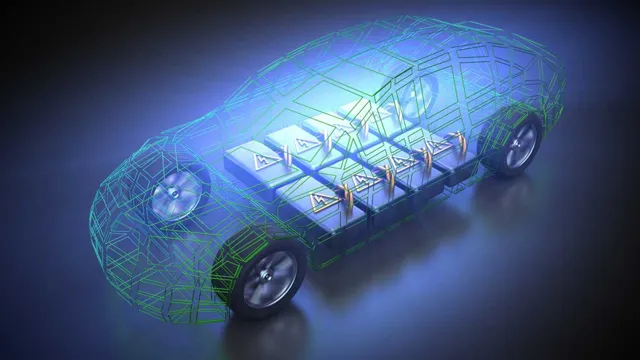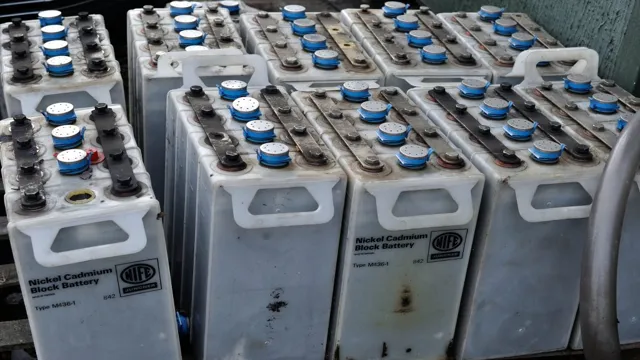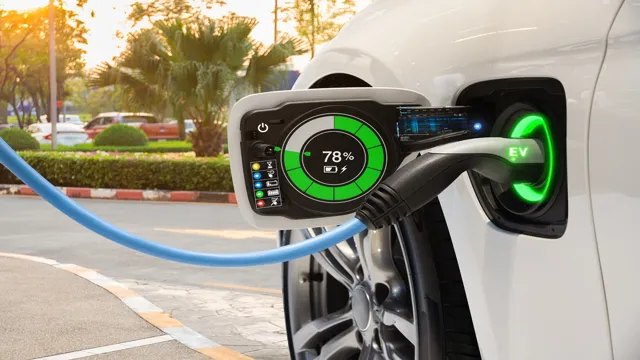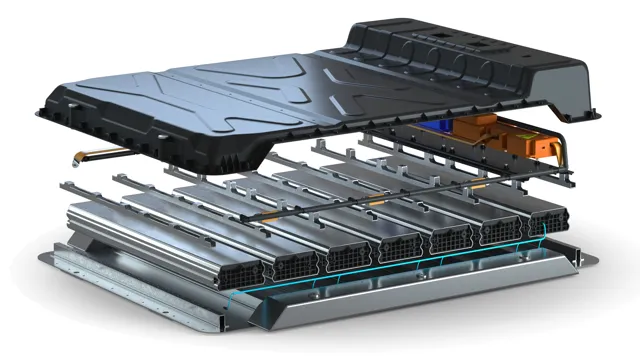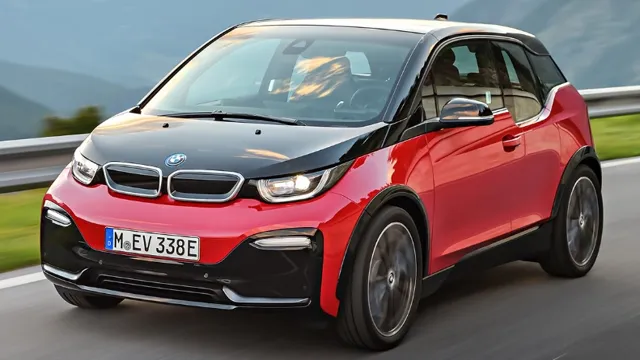The Shocking Truth: Are Electric Car Batteries Truly Recyclable?
If you’re an electric car owner, you probably know that one of the most expensive components in your vehicle is the battery. These advanced, rechargeable batteries are heavy-duty and can last for many years, but eventually, they will need to be replaced. With more and more electric cars hitting the streets every year, the issue of how to recycle and dispose of these batteries is becoming increasingly important.
Fortunately, there are already many innovative solutions being developed as we speak. In this blog post, we will dive into the world of recycling electric car batteries, exploring the need for such solutions, the processes involved, and what the future may hold for this rapidly-evolving technology. So, buckle up and get ready to explore the exciting world of electric car battery recycling!
The Importance of Battery Recycling
Yes, the batteries in electric cars are recyclable and it’s important to recycle them to minimize waste and pollution. In fact, battery recycling is crucial for the sustainability of the electric vehicle industry. Electric car batteries typically contain valuable materials like lithium, cobalt, nickel, and manganese, which can be extracted and reused to make new batteries.
Recycling these materials reduces the need for mining, conserves natural resources, and prevents environmental damage caused by mining and disposal. Moreover, recycling batteries prevents hazardous waste from being disposed of improperly, which can lead to contamination of the soil, water, and air. Therefore, it’s important for manufacturers, governments, and consumers to support battery recycling programs and increase awareness about the benefits of this process.
By doing so, we can ensure that the transition to electric vehicles is not only a cleaner and more efficient alternative to gasoline vehicles, but also a sustainable one.
Reducing Environmental Impact
Reducing environmental impact is a critical issue, and battery recycling plays a vital role in achieving this goal. In today’s world, electronic devices are ubiquitous, and as a result, so many batteries are discarded. When these batteries end up in landfills, the toxic chemicals inside them can leach into the soil and water, harm wildlife, and affect our health.
However, when these batteries are recycled, the valuable minerals and materials inside them can be repurposed, reducing the demand for newly mined ore. This leads to fewer carbon emissions, less water usage, and less energy consumption, resulting in a more sustainable and environmentally conscious way of life. In essence, battery recycling is a crucial step in establishing a circular economy that prioritizes reusing, repurposing, and renewing resources.
By recycling batteries, we can contribute to a cleaner, safer, and healthier planet that benefits us all.
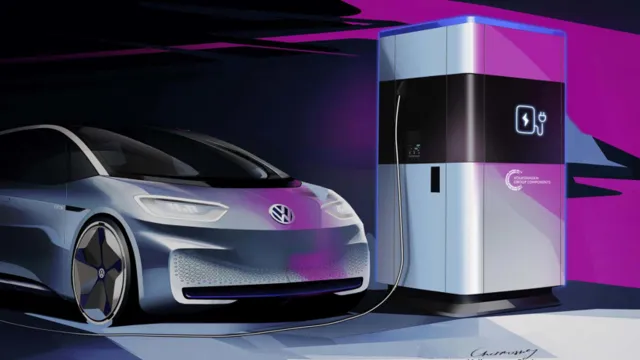
Conserving Natural Resources
Battery recycling is a crucial part of conserving natural resources. Batteries are used in various everyday devices, including electronic gadgets, vehicles, and even renewable energy sources such as solar panels. Unfortunately, batteries have a limited lifespan, and once they are spent, they end up in landfills, where they can contaminate the environment, causing harmful effects on human health and natural resources.
Therefore, it is essential to promote battery recycling programs to protect the environment, reduce waste, and conserve natural resources. Through battery recycling, materials such as lead, lithium, cobalt, and nickel can be recovered and reused to produce new batteries, reducing the need for mining new materials. Also, recycling old batteries reduces the number of toxic chemicals such as mercury and cadmium, which can seep into the soil and water sources, particularly when disposed of improperly.
Moreover, recycling batteries reduces greenhouse gas emissions since the mining and manufacturing of new batteries use vast amounts of energy. In conclusion, battery recycling is a significant way of conserving natural resources and promoting sustainable development. It reduces waste, pollution, and greenhouse gas emissions while preserving precious natural resources, including minerals and energy.
By joining and supporting battery recycling programs, we can all play an active role in protecting the environment and ensuring a cleaner, more sustainable future for generations to come.
The Recyclability of Electric Car Batteries
If you’re considering making the switch to an electric car, you may be wondering about the recyclability of the batteries. The good news is that electric car batteries are indeed recyclable! While the exact process may vary, in general, the recycling involves disassembling the battery pack and extracting the valuable metals and materials inside, like lithium and cobalt. These can then be repurposed for use in other products.
In fact, many countries have regulations in place to ensure that a certain percentage of materials in electric car batteries are recycled. It’s worth noting that while electric car batteries do eventually wear out and need to be replaced, they typically have a long lifespan, often lasting as much as a decade. And even when they are no longer suitable for use in a car, they can still be recycled for their valuable materials.
So, if you’re concerned about the environmental impact of your vehicle, choosing an electric car can be a great way to reduce your carbon footprint.
Availability of Battery Recycling Facilities
Recycling electric car batteries is an essential process as it reduces hazardous waste and conserves natural resources that are required for car battery production. However, the recycling of electric car batteries requires different techniques and specialized facilities as compared to traditional car batteries. This is where the availability of battery recycling facilities comes into play.
To ensure the sustainable disposal of electric car batteries, recycling facilities must be easily accessible and widespread. Fortunately, the demand for electric cars has spurred the development of recycling facilities that specialize in handling electric car batteries. These facilities can handle the intricate and delicate processes required to extract valuable materials like cobalt, nickel, and lithium.
As a result, not only do these facilities contribute to waste management efforts but they also play a role in resource conservation and reducing the carbon footprint of electric cars.
Materials Recyclable from Batteries
Electric car batteries are designed to last a long time, but eventually, they will need to be replaced. When this happens, the question of how to dispose of the old battery arises. Luckily, many of the materials used in electric car batteries are recyclable.
Some of the most common materials in electric car batteries that can be recycled include lithium, cobalt, nickel, aluminum, copper, and graphite. These materials can be removed from the battery and processed to create new batteries or other products. Recycling these materials not only reduces waste but also helps conserve natural resources.
In fact, one study found that recycling just one kilogram of lithium-ion batteries could save as much as 100 to 160 kilograms of raw materials. This highlights the importance of recycling electric car batteries and making sure that this option is available to consumers. By doing so, we can help reduce our environmental impact, conserve resources, and create a more sustainable future.
Recycling Process for Batteries
Electric car batteries are becoming increasingly common and need to be disposed of with care. Luckily, electric car batteries are highly recyclable, which makes them ideal for a more sustainable future. As electric vehicles become more popular, the recycling process for their batteries is a critical part of their lifecycle.
Thanks to technological advances, recycling these batteries has become more manageable than ever before. The process itself involves extracting materials like nickel, cobalt, and lithium from the used batteries and reusing them to create new batteries or other products. Think of it as mining for resources, but in a more sustainable way.
By recycling electric car batteries, we are reducing waste, conserving natural resources, and reducing our carbon footprint. It’s a win-win situation for everyone. So, the next time you think about getting rid of your electric car, remember the importance of recycling its battery to promote a greener, cleaner planet.
Benefits of Recycling Electric Car Batteries
Yes, electric car batteries are recyclable, and there are numerous benefits to recycling them. One of the main advantages of recycling electric car batteries is that it reduces the amount of waste in landfills. These batteries contain hazardous materials that can cause harm to the environment if not disposed of properly.
By recycling them, we avoid the risk of these harmful chemicals leaching into the soil and polluting the water. Another significant benefit is that the recycling process can recover valuable metals such as lithium, cobalt, and nickel. These metals are crucial components in the production of new batteries and are in high demand.
By recycling old batteries, we can offset the cost of manufacturing new ones and reduce the reliance on mining for new resources. Ultimately, recycling electric car batteries is a sustainable and environmentally friendly solution that benefits both society and the planet.
Reduction in Landfill Waste
Recycling electric car batteries has numerous benefits, one being a reduction in landfill waste. Landfills are quickly filling up with waste, and electric car batteries can take up a significant amount of space. By recycling these batteries, we can reduce the amount of waste that ends up in landfills.
Additionally, the materials within the batteries can be extracted and reused, reducing the need for mining new materials. This not only benefits the environment but also the economy as it creates a market for recycled materials. It’s important to note that recycling electric car batteries requires specialized technology and processes, but the benefits make it worth the effort.
Overall, recycling electric car batteries is a crucial step towards sustainability and a cleaner future.
Economic Benefits of Recycling
Recycling electric car batteries doesn’t just benefit the environment; it also brings economic advantages. Electric car batteries contain valuable metals like lithium, cobalt, and nickel, which can be extracted and reused for new batteries. This reduces the need for mining and manufacturing new metals, resulting in lower costs and less environmental damage.
Additionally, recycling helps create jobs and promotes the growth of the recycling industry. As the demand for electric vehicles increases, so does the need for battery recycling, leading to an increase in economic opportunities. Moreover, recycling reduces the cost of producing new batteries, making electric cars more affordable for consumers.
By recycling electric car batteries, we can create a sustainable and cost-effective solution for both the environment and the economy.
Conclusion
In conclusion, it’s important to note that while the batteries in electric cars are not fully recyclable, they are designed with sustainability in mind. Many manufacturers offer programs to safely dispose of and repurpose batteries after their use in a car, reducing the overall environmental impact. So while the batteries may not be 100% recyclable, the move towards electric vehicles is a step towards a cleaner, greener future.
“
FAQs
Why is it important to recycle electric car batteries?
Electric car batteries contain valuable materials such as lithium and cobalt, which can be reused in new batteries, reducing the need to mine for new resources and reducing waste.
Can all components of electric car batteries be recycled?
While most components of electric car batteries can be recycled, there are some materials, such as graphite and some plastics, that are more challenging to recycle.
How are electric car batteries recycled?
Electric car batteries can be recycled through various processes, such as mechanical, pyrometallurgical, and hydrometallurgical methods, depending on the type of battery and the materials it contains.
What happens to electric car batteries that are not recycled?
Electric car batteries that are not recycled may end up in landfills, where they can potentially leak toxic chemicals and heavy metals into the environment, posing a risk to human health and the ecosystem.
